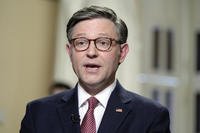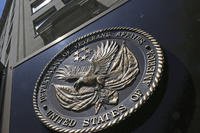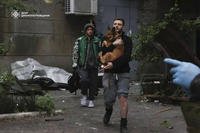 This article first appeared in Aerospace Daily & Defense Report.
This article first appeared in Aerospace Daily & Defense Report.
U.S. lawmakers soon will have to address privacy issues raised by the use of UAVs in domestic airspace, a recent Congressional Research Service (CRS) report says.
"The prospect of drone use inside the United States raises far-reaching issues concerning the extent of government surveillance authority, the value of privacy in the digital age, and the role of Congress in reconciling these issues ," says the report, "Drones in Domestic Surveillance Operations: Fourth Amendment Implications and Legislative Responses," released Sept. 6.
While UAVs have become a weapon of choice for Pentagon war planners in recent military conflicts, the unmanned systems are on the ascent for operations on or close to U.S. borders as well, the report notes.
"These unmanned aircraft are most commonly known for their operations overseas in tracking down and killing suspected members of Al Qaeda and related organizations," CRS reports. "In addition to these missions abroad, drones are being considered for use in domestic surveillance operations , which might include in furtherance of homeland security, crime fighting, disaster relief, immigration control, and environmental monitoring."
Although relatively few drones are currently flown over U.S. soil, CRS says, the Federal Aviation Administration ( FAA ) predicts that 30,000 UAVs will fill the nation's skies in less than 20 years. "Congress has played a large role in this expansion," CRS says. "In February 2012, Congress enacted the FAA Modernization and Reform Act, which calls for the FAA to accelerate the integration of unmanned aircraft into the national airspace system by 2015."
However, says CRS, "some members of Congress and the public fear there are insufficient safeguards in place to ensure that drones are not used to spy on American citizens and unduly infringe upon their fundamental privacy."
CRS also reports, "These observers caution that the FAA is primarily charged with ensuring air traffic safety, and is not adequately prepared to handle the issues of privacy and civil liberties raised by drone use ."
In assessing the use of UAVs and possible violation of the Fourth Amendment right to be free from unreasonable searches and seizures, CRS reports , "the touchstone of the Fourth Amendment is reasonableness."
A court review of the reasonableness of UAV surveillance, CRS says, "would likely be informed by location of the search, the sophistication of the technology used, and society's conception of privacy in an age of rapid technological advancement. While individuals can expect substantial protections against warrantless government intrusions into their homes, the Fourth Amendment offers less robust restrictions upon government surveillance occurring in public places and perhaps even less in areas immediately outside the home, such as in driveways or backyards. Concomitantly, as technology advances, the contours of what is reasonable under the Fourth Amendment may adjust as people's expectations of privacy evolve."
- By Michael Fabey








